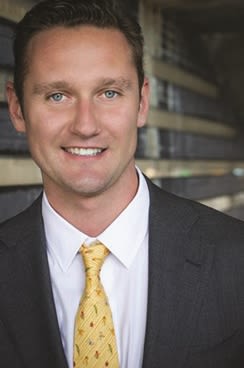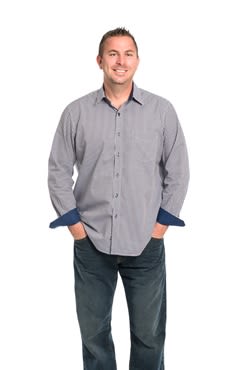You Invented What?
by David Ball
Photography by Barbara Banks
GIMME SHELTER
SEAN VERDECIA OF ABLENOOK
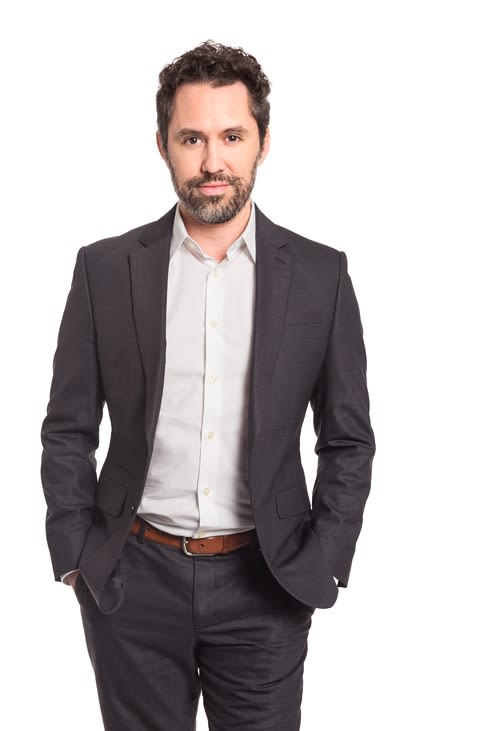
FOUR YEARS AFTER HURRICANE KATRINA, University of South Florida architecture student Sean Verdecia was still wondering why there was no cheap, easy-to-install housing for the thousands of newly homeless.
“History was doomed to repeat itself,” Verdecia says. “With [today’s] technology, anything is possible. [But] nobody had come up with a solution.”
Now Verdecia, 37, says he has created that solution, called AbleNook. The company is also the name of the product, an inexpensive modular dwelling unit that Verdecia calls the iPhone of portable buildings—it can be customized with accessories and used by almost anyone anywhere.
The 64-square-foot building is made mostly of aluminum with prefabricated walls and a porch. Units can be attached together to make larger living spaces, though Verdecia says a three-section, 192-square-feet unit would be ideal for emergency housing. AbleNooks can also be outfitted for higher-end residential, office and other commercial uses.
Verdecia formed AbleNook in 2011 with fellow USF architecture student Jason Ross, 28, as part of a research project. They received a $12,000 grant to build a prototype and continued to improve it after graduating, with Ross in Atlanta and Verdecia working at Sarasota’s Jonathan Parks Architect, where AbleNook now shares office space.
The company is looking for investors but also is considering an initial bulk order of 100 units to help fund the start-up. Unit pricing has not been set. Sarasota’s Gramatica SIPS International, a manufacturer of insulated panels, made AbleNook’s wall systems and will likely do so again.
Verdecia says they are still looking for manufacturing partners around the globe to build the units—though the design and business headquarters likely will be in Sarasota or Tampa.
BUY LOW, SELL HIGH
JORDAN BERGER OF TECHNICAL420
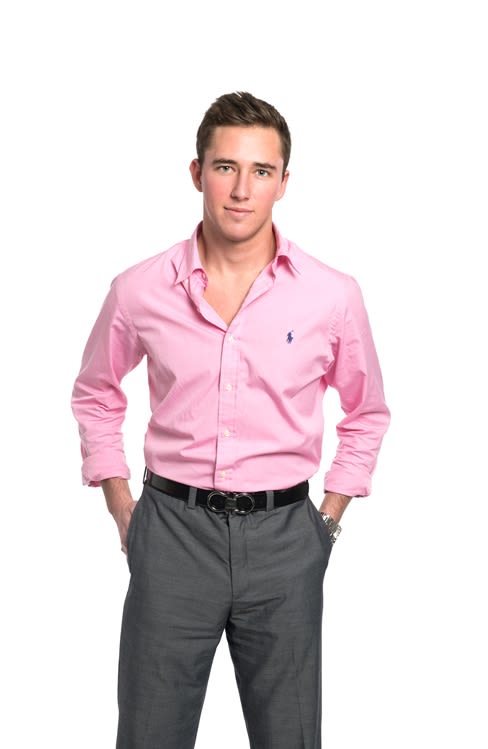
“We wanted to develop a platform to provide up-to-date analysis on marijuana companies.”
BILLIONS ARE BEING MADE in the medical and recreational marijuana industry, and investors want in. But since marijuana businesses involve a federally illegal product, major investment houses won’t touch them. For two young entrepreneurs, it’s a void too big to ignore.
Last March, Jordan Berger, 21, and Michael Berger, 25, (no relation) formed Technical420—with the irresistible tagline, “Buy Low, Sell High”—to advise investors about publicly traded marijuana-based companies. They launched a website in July, and a thousand people signed up in just six weeks.
“We found over 100 [marijuana] companies and there was no reliable information on them,” Jordan Berger says. “When you invest, you have to do research. Because the marijuana industry was evolving [so] fast, we wanted to develop a platform to provide up-to-date analysis on these companies.”
Companies that handle marijuana plants can’t legally go public, so they focus on companies that provide ancillary products and services. Most are penny stocks, though as more states legalize marijuana, the industry will grow.
Michael was an analyst at Raymond James Financial, fielding hundreds of calls about marijuana investing before he quit to work at Technical420 full-time. He does research and consults with investors.
Tech-savvy Jordan helped pull all of Michael’s analysis into a user-friendly “dashboard.” Technical420 went live in January and in two days had 2,000 subscribers and 800 members at $20 a month. The company secured $75,000 in seed money from an investor in Miami, and Berger says they will raise another $75,000 for marketing and new products. Their goal is to create the first marijuana exchange-traded fund (ETF), and eventually bundle the best companies to trade as an index, though that will likely require federal legalization of marijuana, Berger says.
BUSINESS HOOK-UP
JANIS KRUMS AND BILL JULA OF OPPRTUNITY
FOR TECH START-UPS, the biggest bets usually lead to the biggest payoffs. Sarasota entrepreneurs Janis Krums and Bill Jula are betting that an online professional network, called Opprtunity, will compete with—and maybe even replace—established giant LinkedIn.
It’s a bold vision for 29-year-old Krums, a Latvian native who came to Sarasota as a 10-year-old. He studied business and marketing at Georgetown University and gained social media notoriety when he tweeted the now famous photo of the 2009 U.S. Air emergency landing in New York’s Hudson River.
Jula, 42, previously founded a 200,000- member online business network called PROskore. The two hatched the idea for Opprtunity in early 2013 and launched a test site for opprtunity.com last June. With no marketing, they’ve seen a 10 percent monthly increase in users, who now number more than 30,000 across dozens of countries.
“Our goal was to create a smarter layer of connecting business professionals [on top of LinkedIn],” Krums says. “Now we’re seeing it can replace LinkedIn because users are getting utility out of it. It’s not just a resume posted online.”
Opprtunity isn’t a social network, per se. There is no profile to manage. Instead, users submit their needs for sales leads or employment or workers or other services. An algorithm matches them up with other Opprtunity users who can meet those needs, usually within a nearby geographical area. More users means a bigger, smarter network and bigger profits.
Krums and Jula are self-funded and earn revenue from users’ $20-per-month fees (there are also free memberships with less service). They intend to seek investor funding this year and hire a small team in Sarasota. Their goal is 200,000 users by the end of 2015 and, ultimately, to be the biggest professional network in the world.
CHILL FACTOR
KAHORU “KALU” WATANABE OF COOL FLOW DYNAMICS
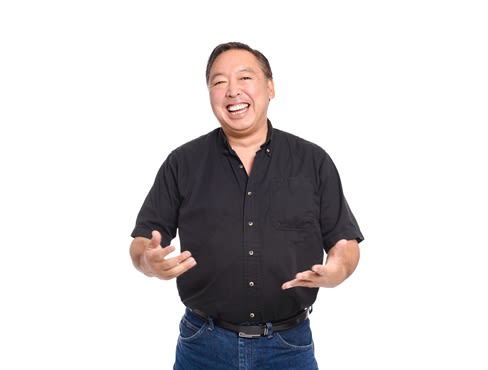
“I knew what I was looking for, and I found it right in my own back yard.”
SOMETIMES A LITTLE LUCK can be as important as years of hard work. Sarasota entrepreneur Kahoru “Kalu” Watanabe can claim both with his Cool Flow Dynamics.
The company, incorporated in August 2013, is producing a new technology to increase the efficiency and usability of open refrigeration cases in grocery and other stores. The technology involves something called a plasma actuator, which, it just so happens, Watanabe found at a research lab at the University of Florida.
“It was pretty amazing,” Watanabe, 52, says. “I knew what I was looking for, and I found it right in my own back yard.”
The actuator is used in the military to decrease drag on aircraft and missiles. Watanabe wants to use it to create a fast-moving, thin current of air that blows over the huge openings in freezer and refrigerator cases, creating a virtual door that keeps cold air in and warm air out. The actuators use very little electricity, so energy savings could be enormous.
Watanabe holds an application patent for this use of the actuators and has a licensing agreement with UF to develop the technology. He obtains the funds that pay for the research, while the lead researcher, Dr. Subrata Roy, has come on board as Cool Flow Dynamics CTO.
“We can function with [fewer] people because we’ve outsourced our product development, the most labor-intensive part, to University of Florida,” Watanabe says.
This is the sixth company founded by Watanabe. He started Cool Flow Dynamics with $25,000 of his own money and has secured another $650,000 plus $150,000 in research grants.
Watanabe expects to have a prototype developed and manufacturing costs determined this month, and to field orders later this year. Cool Flow Dynamics is also working on applying plasma actuator technology to decrease drag on trucks and increase their fuel efficiency. ■
____
PITCH PERFECT
OK, so you’ve got an idea for a product or business that’s going to change the world—and make you rich. Chances are your start-up will need capital, and that means pitching your idea to investors.
While Sarasota is full of entrepreneurs, ex-CEOs and retired executives ready to invest, that doesn’t mean funding is easy to come by. Longboat Key resident and investing expert Dean Eisner says a great start-up or business idea can be ruined by a bad pitch. Here are his tips to making your case as the next big thing.
1 KNOW YOUR MARKET OPPORTUNITY AND SUPPORT IT WITH FACTS.
“You have to understand what the company is trying to achieve in the market and if it can be sustained. Is the market growing? How is it trending, and can you scale your product or business? Don’t just tell me you’ve got a feel for it; show me statistically that this is a trend and what the growth potential is."
2 A BUSINESS MODEL TELLS YOUR STORY.
“A concept can sound great, but sometimes idea generators really haven’t thought about the true pricing for the products or service, a good estimate of their volume and what operating expenses are needed. I’m going to want to know how my money is used to ensure that a believable business model is going to be produced and I’m going to get a return.”
3 BRING SOMETHING UNIQUE, NOT NECESSARILY THE PRODUCT ITSELF.
“Now tell me why your model is the one I should bet on over the others. It could be that you have a relationship [with a distributor or vendor] and a contract in hand. It could be that you have some kind of intellectual property that prevents others from doing what you’ve done. The more you can differentiate yourself, the more your idea has a chance to win.”
4 EXPERIENCE ON THE MANAGEMENT TEAM IS CRUCIAL.
“For most investors, this is the No. 1 item. Anyone who has established a proven track record brings credibility. For a young or new entrepreneur, that can be achieved by attracting advisers who have that experience and credibility. A quality adviser can improve the chances of the company taking off.”
5 BE REALISTIC IN YOUR VALUATION AND DEAL.
“So you’ve gotten through the first four criteria. Now what are the terms of the deal? Am I getting 10 percent of the company for putting in $10 million? That’s probably not realistic. How can I get my money out? What voice do I have as an investor? Can I fire the CEO? Now we’re down to the details. Some people are very unrealistic, so they walk away from deals, and sometimes that is the death of them.”
Dean Eisner is former president and CEO of Manheim, a $3.8 billion automotive wholesaler, and former head of investments for media conglomerate Cox Enterprises. He works with the nonprofit BIG (Bright Ideas on the Gulf Coast), connecting new entrepreneurs and idea-generators with established advisers and investors.
